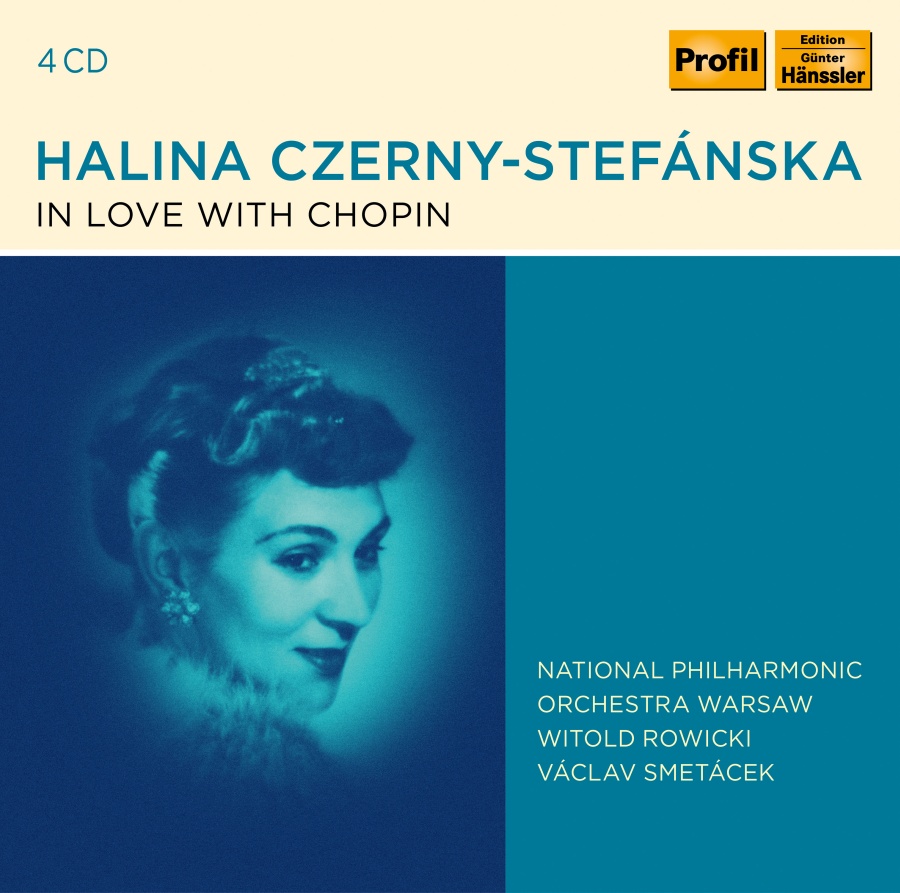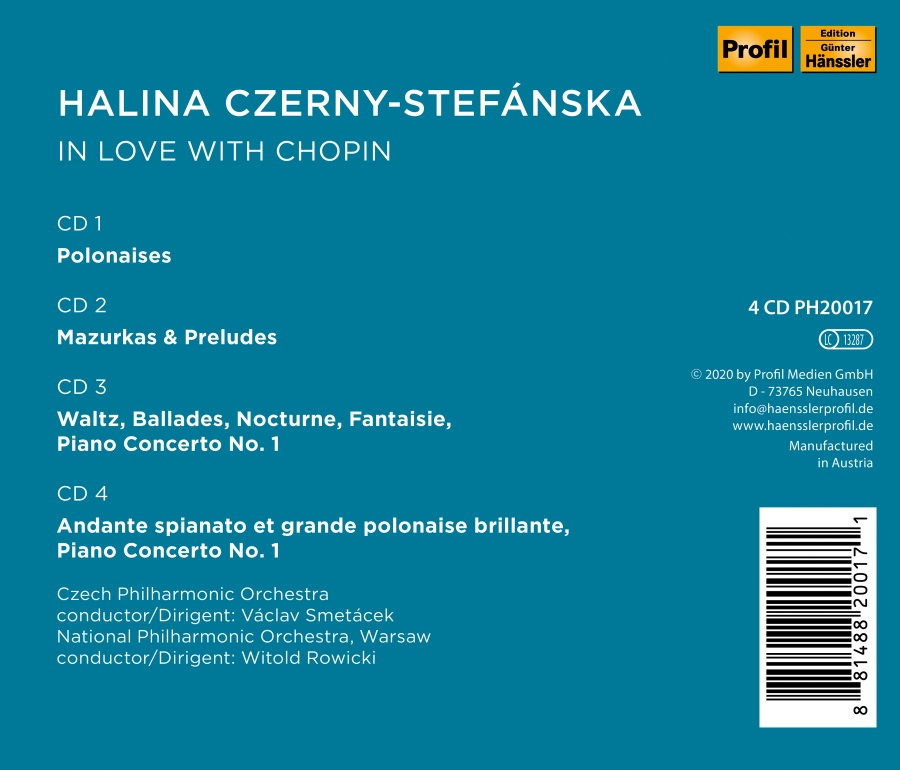
kompozytor
Chopin, Fryderyk
tytuł
Halina Czerny-Stefańska - In Love with Chopin
wykonawcy
Czerny-Stefańska, Halina
nr katalogowy
PH 20017
opis
Halina Czerny-Stefańska, who was born in Kraków in 1922 and died there in 2001, achieved international fame as an interpreter of Chopin. On the 150th anniversary of the Polish composer's birth, the stateowned record company Polskie Nagrania produced a comprehensive collection of his works, featuring a number of her exemplary recordings, which form a major part of this CD set. • One incident makes particularly clear what high esteem Chopin interpreter Czerny-Stefánska had achieved in the world of music: Chopin's Piano Concerto No. 1 was released in the West as an LP featuring the brilliant, short-lived pianist Dinu Lipatti. Fifteen years passed before it transpired that the artist on this recording was not Lipatti, but Czerny-Stefánska, with the conductor Václav Smetácek. The mistake was admitted and corrected. • Halina Czerny-Stefánska hailed from a family defined by music. Her father, who also became her first teacher, taught piano students at the Kraków Conservatory. He was a direct descendant of Beethoven’s pupil – the composer Carl Czerny. At the age of 11, Halina made her début in Paris and won an Alfred Cortot scholarship, before continuing her studies in Warsaw. • She first came to the attention of the international world of music when in 1949, at the first post-war Chopin competition in Warsaw, she won first prize. The surprise was especially resonant because she was the first Polish winner in this competition, the prizes of which had hitherto gone exclusively to artists from the Soviet Union. This was the birth of a worldwide career. • Concerts in western and eastern Europe followed, and afterwards in the USA, China and – notably – in Japan. At the Long-Thibaud competition in 1957, Halina Czerny-Stefánska was a member of a top-class jury for the first time. Numerous similar appointments followed, among them Tel Aviv (the Arthur Rubinstein International Piano Master Competition), Moscow (the Tchaikovsky Competition), Budapest (the Liszt-Bartok Competition) and Japan. She taught at the Academies of Music in Warsaw and Kraków, ran courses, and led many masterclasses in Europe and Japan that were much in demand and enthusiastically received by a new generation of young musicians.
nośnik
CD
x 4
gatunek
Muzyka klasyczna
producent
Profil Medien
data wydania
05-05-2020
EAN / kod kreskowy
881488200171

(Produkt nie został jeszcze oceniony)
cena 129,00 zł
lubProdukt na zamówienie
Wysyłka ustalana indywidualnie.
Darmowa wysyłka dla zamówień powyżej 300 zł!
Darmowy kurier dla zamówień powyżej 500 zł!
sprawdź koszty wysyłki






























